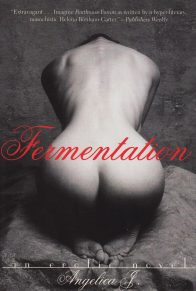The piano teacher, Erika Kohut, bursts like a whirlwind into the apartment she shares with her mother. Mama likes calling Erika her little whirlwind, for the child can be an absolute speed demon. She is trying to escape her mother. Erika is in her late thirties. Her mother is old enough to be her grandmother. The baby was born after long and difficult years of marriage. Her father promptly left, passing the torch to his daughter. Erika entered, her father exited. Eventually, Erika learned how to move swiftly. She had to. Now she bursts into the apartment like a swarm of autumn leaves, hoping to get to her room without being seen. But her mother looms before her, confronts her. She puts Erika against the wall, under interrogation — inquisitor and executioner in one, unanimously recognized as Mother by the State and by the Family. She investigates: Why has Erika come home so late? Erika dismissed her last student three hours ago, after heaping him with scorn. You must think I won’t find out where you’ve been, Erika. A child should own up to her mother without being asked. But Mother never believes her because Erika tends to lie.
Mother is waiting. She starts counting to three.
By the count of two, Erika offers an answer that deviates sharply from the truth. Her briefcase, filled with musical scores, is wrenched from her hands—and Mother instantly finds the bitter answer to all questions. Four volumes of Beethoven sonatas indignantly share cramped quarters with an obviously brand-new dress. Mother rails against the purchase. The dress, pierced by a hook, was so seductive at the shop, so soft and colorful. Now it lies there, a droopy rag, pierced by Mother’s glare. The money was earmarked for their savings account. Now it’s been spent prematurely. The dress could have been visible at any time as an entry in the bank book—if you didn’t mind going to the linen closet, where the bank book peeks out from behind a pile of sheets. But today, the bank book went on an outing, a sum was withdrawn, and the result can now be seen. Erika should put this dress on whenever they wonder where the nice money went. Mother screams: You’ve squandered your future! We could have had a new apartment someday, but you couldn’t wait. All you’ve got now is a rag, and it’ll soon be out of fashion. Mother wants everything “someday.” She wants nothing right now—except the child. And she always wants to know where she can reach the child in an emergency, in case Mama is about to have a heart attack. Mother wants to save now in order to enjoy someday. And then Erika goes and buys a dress, of all things! Something more fleeting than a dab of mayonnaise on a sardine sandwich. This dress will soon be totally out of fashion—not even next year, but next month. Money never goes out of fashion.
They are saving to buy a large condominium. The cramped apartment they now rent is so ancient, you might as well just abandon it. When they decide on the condominium, they will be allowed to specify where to put the closets and the partitions. You see, an entirely new construction system is being used. Every aspect is custom-designed, according to your precise wishes. You pay your money and you get your choice. Mother, who has only a tiny pension, gets her choice and Erika pays. In the brand-new state-of-the-art condominium, mother and daughter will each have her own realm, Erika here, Mother there, both realms neatly divided. However, they will have a common living room to meet in. If they wish. But of course they do, because they belong together. Even here, in this dump, which is slowly falling to pieces, Erika already has her own realm, her own roost, which she rules and is ruled in. It is only a provisional realm; Mother can walk in at any time. There is no lock on Erika’s door. A child has no secrets from her mother.
Erika’s living space consists of her own small room, where she can do as she pleases. No one may interfere; this room is her property. Mother’s realm is the rest of the apartment: the housewife, being in charge of everything, keeps house everywhere, and Erika enjoys the fruits of her mother’s labor. Erika has never had to do housework, because dustrags and cleansers ruin a pianist’s hands. During Mother’s rare breathers, she occasionally worries about her vast and varied holdings. You can’t always tell where everything is. Just where is Erika, that fidgety property? Where is she wandering? Is she alone or with someone else? Erika is such a live wire, such a mercurial thing. Why, she may be running around at this very moment, up to no good. Yet every day, the daughter punctually shows up where she belongs: at home. Mother worries a lot, for the first thing a proprietor learns, and painfully at that, is: Trust is fine, but control is better. Her greatest anxiety is to keep her property immovable, tie it down so it won’t run away. That’s why they have the TV set, which prefabricates, packages, and home-delivers lovely images, lovely actions. So Erika is almost always at home. If not, her mother knows where she’s flitting about. Now and then, Erika may attend an evening concert, but she does so less and less. Instead she sits at her piano, pounding away at her long-discarded career as a concert pianist. Or else Erika enjoys performing with congenial colleagues, exuberantly playing chamber music. Her mother can telephone her at such times too. Erika pulls against apron strings, she repeatedly begs her mother not to telephone. But Mother ignores her pleas, for she alone dictates the shalts and shalt-nots. Mother also controls the general demand for her daughter, so that ultimately fewer and fewer people wish to see Erika, or even speak to her. Erika’s vocation is her avocation: the celestial power known as music. Music fills her time completely. Her time has no room for anything else. Nothing offers so much pleasure as a magnificent performance by the finest virtuosi.
Erika visits a café once a month, but her mother knows which café, and she can ring her up there too. Mother makes generous use of this privilege, this homemade structure of security and intimacy.
Time around Erika is slowly turning into a plaster cast. It crumbles the instant her mother strikes it. At such moments, Erika sits there, with remnants of time’s brace around her thin neck. Mother has called her up, making her a laughingstock, and Erika is forced to admit: I have to go home now. Home. If ever you run into Erika on the street, she is usually on her way home.
Mother says: Erika suits me just fine the way she is. Nothing more will come of her. She’s so gifted, she could have easily become a nationally renowned pianist—if only she’d left everything to me, her mother. But Erika ignored her mother’s wishes, and sometimes yielded to other influences. Self-centered male love threatened to interfere with her studies. Superficial things like makeup and clothes reared their ugly heads. And her career ended before it ever got underway. Still, you need some kind of security: the position of piano teacher at the Vienna Conservatory. And she didn’t even have to pay her dues by teaching at one of the neighborhood music schools, where so many people grind away their young lives, turning dusty gray, hunchbacked—a swiftly passing throng, barely noticed by the principal.
But that vanity of hers, that wretched vanity. Erika’s vanity is a major problem for her mother, driving thorns into her flesh. Erika’s vanity is the only thing Erika should learn to do without. Better now than later. For in old age, which is just around the corner, vanity is a heavy load to bear. And old age is enough of a burden as it is. Oh, that Erika! Were the great musicians vain? They weren’t. The only thing Erika should give up is her vanity. If necessary, Mother can smooth out the rough edges, so there won’t be anything abrasive in Erika’s character.
That’s why Mother tries to twist the new dress out of Erika’s convulsed fingers. But these fingers are too well trained. Let go, Mother snaps, hand it over! You’ve got to be punished for caring so much about trivial things. Life has punished you by ignoring you, and now your mother will punish you in the same way, ignoring you, even though you dress up and paint your face like a clown. Hand it over!
Erika dashes to the closet. Her dark suspicion has been confirmed several times in the past. Today, something else is missing: the dark gray autumn ensemble. What’s happened?













